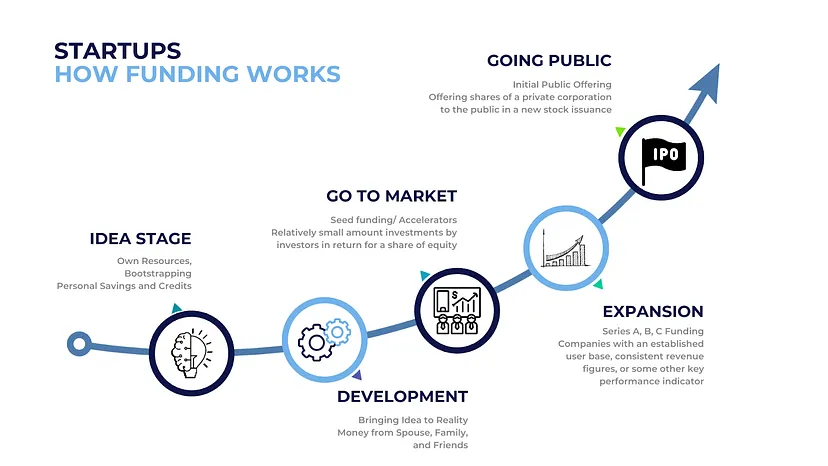Funding Round
What is a Funding Round?
Definition:
A “Funding Round” in the realm of startup financing refers to a specific phase in which a company seeks to raise capital from investors to support its growth, operations, and expansion plans. Funding rounds typically involve pitching to potential investors, negotiating terms, and securing investment commitments to fuel the company’s development and scale its business operations.
Analogy:
Think of a Funding Round as a pit stop during a long journey. Just as a pit stop allows a racing car to refuel, adjust tire pressure, and make necessary adjustments for the next leg of the race, a funding round enables a startup to secure the financial resources needed to fuel its growth and navigate the challenges of scaling its business.
Further Description:
Funding rounds are structured financing events that occur at different stages of a company’s lifecycle, from early-stage startups seeking seed funding to more established companies raising Series A, B, C, and beyond. Each funding round represents an opportunity for the company to secure investment capital in exchange for equity ownership or other forms of financial participation.
Why is a Funding Round Important?
Funding rounds are critical milestones in the journey of a startup, providing the financial resources necessary to execute its business plan, develop products, acquire customers, and expand into new markets. Securing funding from investors not only provides the capital needed for growth but also validates the company’s vision, market potential, and value proposition.
Examples and Usage:
- Seed Round: A seed funding round is typically the first round of external financing raised by a startup, usually from angel investors, venture capital firms, or early-stage investment funds. Seed funding is used to validate the business concept, develop a minimum viable product (MVP), and conduct initial market testing.
- Series A, B, C Rounds: As a startup progresses and demonstrates traction, it may pursue additional funding rounds, such as Series A, B, and C rounds, to fuel its expansion and scale its operations. These rounds involve larger investment amounts and are often led by institutional investors and venture capital firms.
- Bridge Financing: In some cases, startups may encounter gaps in funding between major rounds or during periods of rapid growth. Bridge financing, also known as interim or extension funding, provides short-term capital to bridge these gaps and sustain the company’s operations until the next funding round.
- Pre-IPO Financing: In preparation for an initial public offering (IPO), companies may engage in pre-IPO financing rounds to raise additional capital and enhance their financial position. Pre-IPO financing may involve strategic investors, private equity firms, or institutional investors seeking to invest in the company before it goes public.
Basically, a Funding Round is a structured financing event in which a startup raises capital from investors to support its growth and expansion plans. It involves pitching to investors, negotiating terms, and securing investment commitments to fuel the company’s development.
For example, a technology startup may raise a Series A funding round to accelerate product development, expand its sales and marketing efforts, and scale its operations to capture market share.
Key Takeaways:
- A Funding Round is a specific phase in which a startup raises capital from investors to support its growth and expansion plans.
- Funding rounds occur at different stages of a company’s lifecycle, from seed funding for early-stage startups to pre-IPO financing for companies preparing to go public.
- Each funding round represents an opportunity for the company to secure investment capital and validate its business model, market potential, and value proposition.





